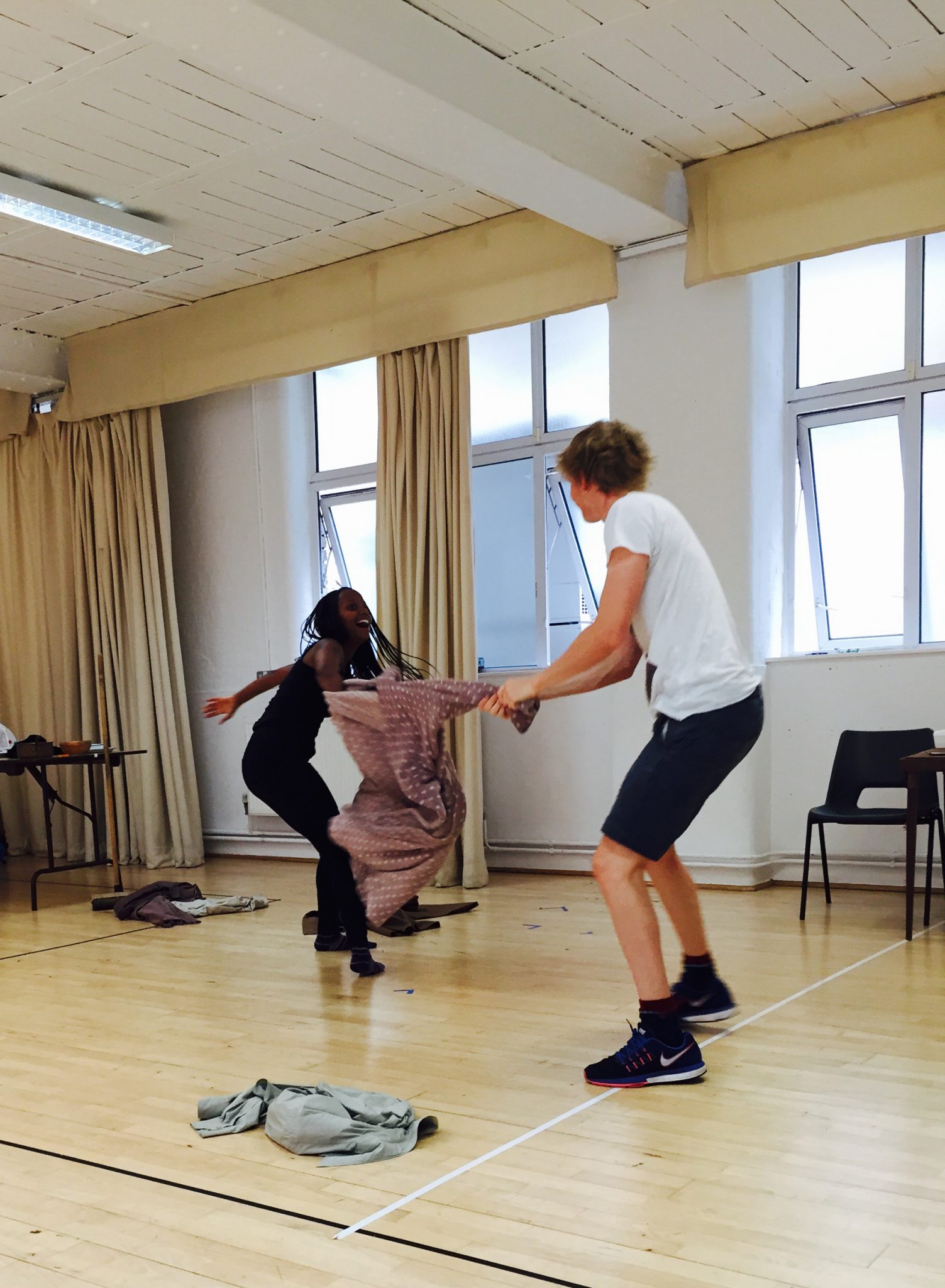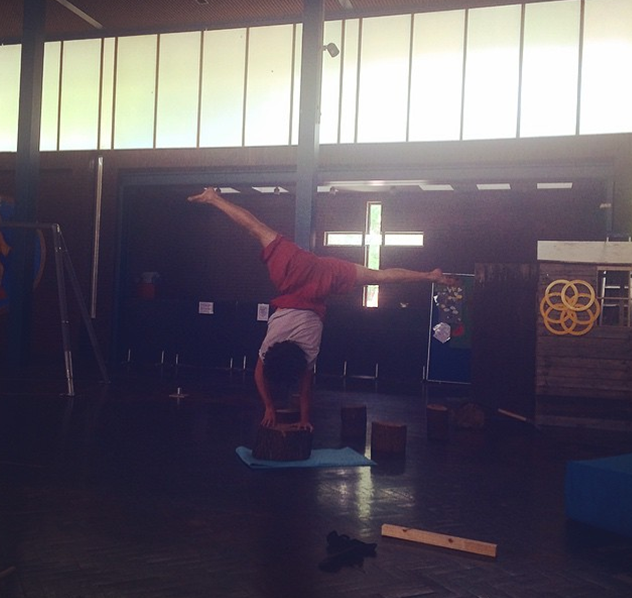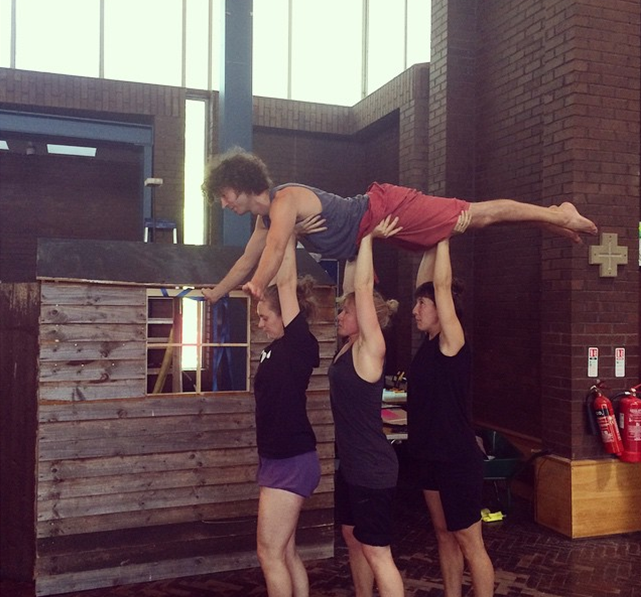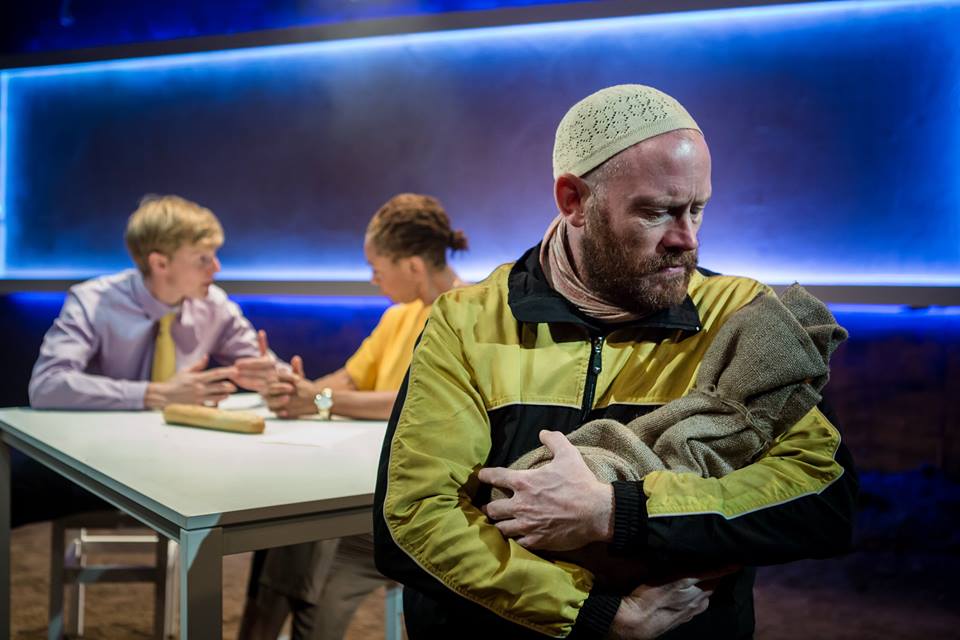
Anniversaries. Time to look back and time to look forward. Nice to reflect and so as well as thinking about how we continue to evolve and adapt for the future, given the ever tightening resources from funders and venues, it's also nice to celebrate our successes. 2015 has been an extraordinary year for the company with the combination of large scale opera (Cosi fan tutte), our first midscale tour (The King of Tiny Things) and some astonishing new writing playing in the west end to 5 and 4 star reviews (Mouthful). But every year is an extraordinary year at Metta towers so I thought I'd revisit some highlights from this last decade as we celebrate our 10th anniversary...
‘stirring and moving…one of the most riveting conversations I have ever had the privilege of seeing unravel on stage… mesmerising.’ ★★★★★ London Theatre1 on Mouthful
One of our first productions back in 2006 was a site responsive staging of Ed Hughes' contemporary opera The Birds (after Aristophanes). As well as sewing the seeds of our trademark cross-art-form style by combining mask work with some imaginative movement involving a lot of coloured scarves it featured a cast of extraordinary singers many of whom including Rebecca Lea and Lucy Page are now the rising stars of the classical music scene. It even featured one of our longest and best loved collaborators, now a west end choreographer and musical director Tim Jackson, back in his counter-tenor days.
'the production was outstanding...excellent.’ Daily Info on The Birds
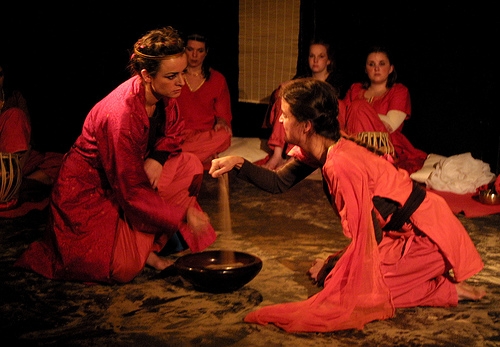
The highlight of 2007 was our all female Hamlet - which we hope to reprise in the not too distant future. It was a beautiful fluid production, our first collaboration with award winning composer Jess Dannheisser and a brilliant cast including the wonderful Cassie Raine as Claudius, who has recently established the brilliant Parents in Performing Arts (PIPA) campaign.
'a beautiful and bold production, full of wonderful detail' This Is London on Hamlet
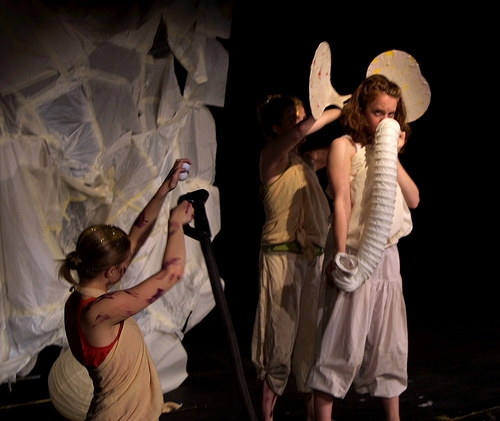
We went all out on the opera front in 2008 with our haunting staging of Poulenc and Cocteau's La Voix Humaine at Riverside Studios featuring Rebecca Lea again as the doomed heroine and over 100m of red ribbon as her ever lengthening telephone cord. Followed by a contemporary opera by Jess Dannheisser (words by me) based on the Just So Stories which was our first flirtation with family work, for the Grimeborn Festival at the Arcola.
'delightful...combining dance, song, puppetry and story telling into an effective drama to entrance both young and old.’ Musical Pointers on The Elephant's Child
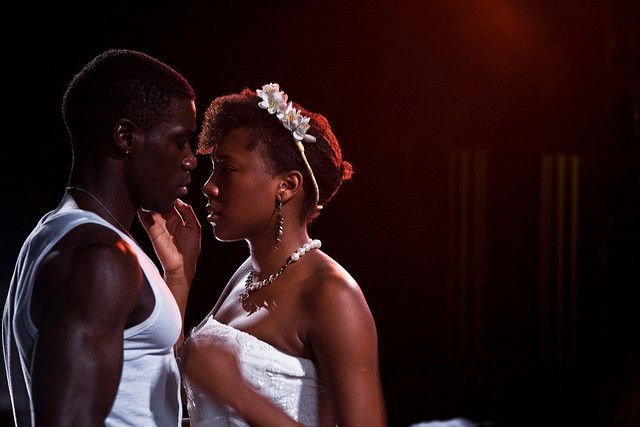
2009 saw us taking over Southwark Playhouse with our immersive Caribbean South London version of Blood Wedding garnering a slew of great reviews and 200m of bunting which has served the company well over the years. Featuring Trevor Michael Georges and Jade Anouka in one of her early stage roles it was a tour de force of acting and powerful re imagining of Lorca for the 21st century.
'a relevant and powerful production.’ ★★★★ The Metro, Critics' Choice on Blood Wedding
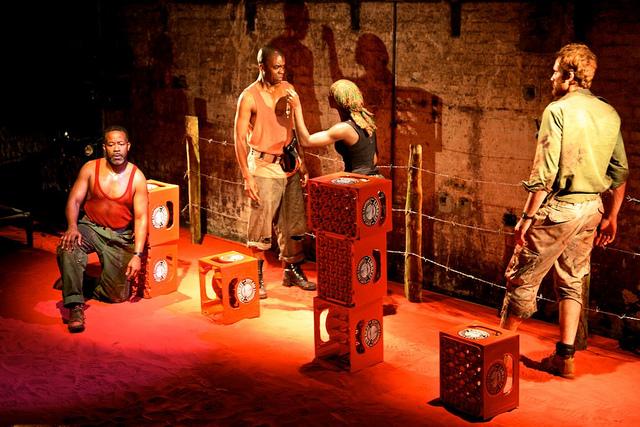
2010 was a busy year with both Otieno Trevor Michael Georges' Zimbabwean version of Othello which enthralled the critics (in no small part due to Will's atmospheric set of blood-like red sand and characteristically dark lighting) and a piece of verbatim music-theatre Waiting - about the wives of detainees of Guantanamo and Belmarsh, starring Juliet Stevenson which sold both of its runs at the Southbank Centre.
'a highly effective, imaginative response to the classical play that both grips and stirs.’ ★★★★ The Times on Otieno

2011 began the start of our touring adventures as we took our site responsive staging of Pirandello's The Man With the Flower in His Mouth to cafes across the UK. With extraordinary performances from Liana Weafer and Sam Collings - now firmly entrenched at the RSC - this was another show that wowed the critics and another opportunity for me to redress the gender imbalance of our playwriting culture by switching the gender of the roles. We also began working with circus for the first time with our adaptation of Jeanette Winterson's Sexing The Cherry which had a sell out run at the Southbank centre.
'stunning performances... an enthralling hour’ ★★★★ Whats On Stage on The Man With the Flower in His Mouth
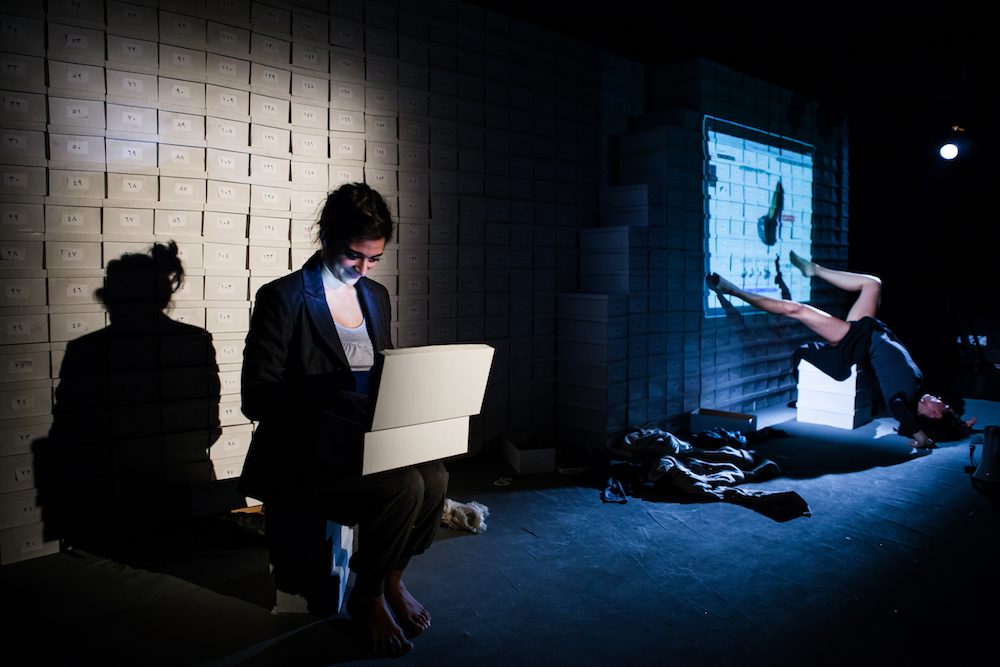
The highlight of 2012 was Arab Nights - a sextet of short plays exploring the Arab Spring by writers from across the Middle East and North Africa which wowed the critics at the Soho Theatre before touring the UK. We also started developing our opera Flicker exploring Locked in syndrome, a stunning chamber opera by Jon Nicholls (words by me) exploring Locked in syndrome, which went on to première at Sadlers Wells in 2013. Oh and we also gave birth to our first son Noah.
'exquisite…impressive… the physical wit and economical elegance carry you on into empathy' ★★★★ The Times on Arab Nights
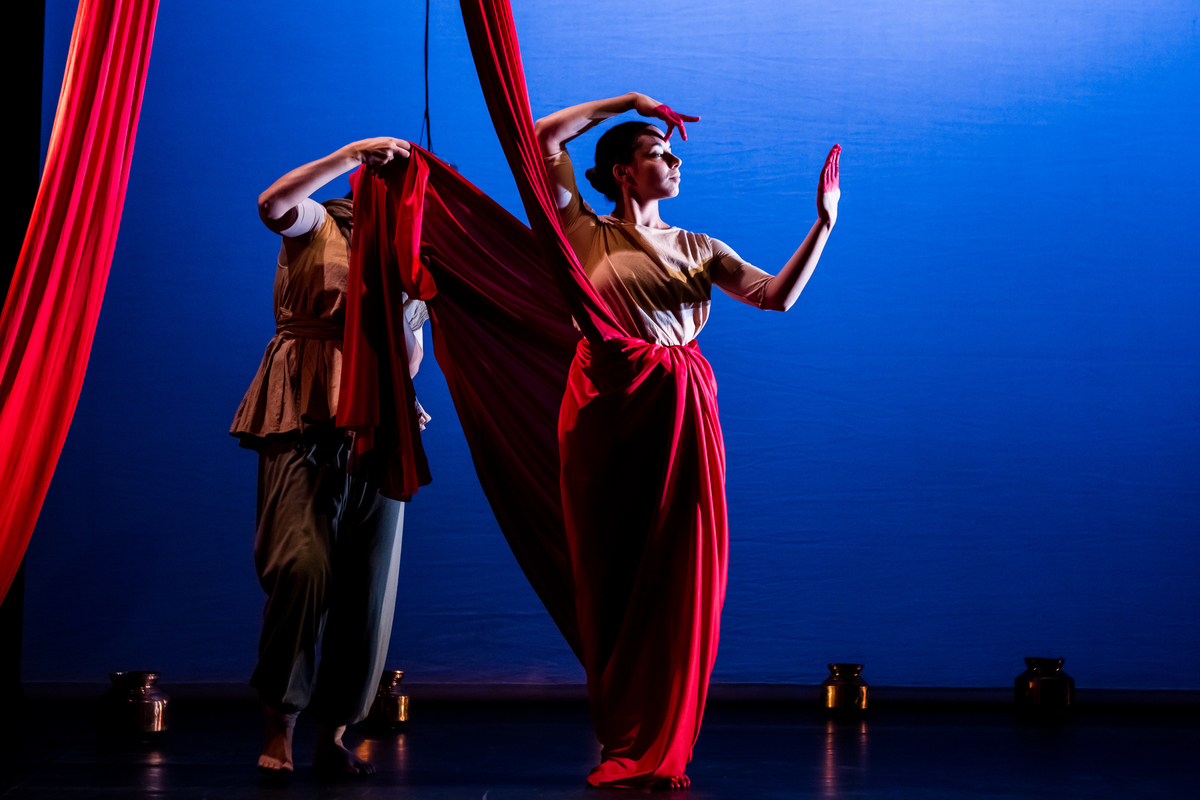
2013 was also a circusy time with another site-responsive tour, this time to playgrounds, of our new circus show Monkey and Crocodile. Bringing a quietly progressive story to families across the UK, many of whom had never seen live performance before. In the autumn we also premièred our stunning aerial dance theatre show Well highlighting the ongoing global tragedy of arsenic poisoning in Bangladesh.
‘utterly irresistible …an enchanting mix of music, circus skills, story-telling and apples…genuinely touching' ★★★★ Exeunt on Monkey & Crocodile

Last year, 2014, saw us on the road a lot with two UK tours of Alice - exploring the story of the real life Alice in wonderland who lost two of her three sons in WW1 . With veteran puppeteer Mandy Travis and star of War Horse Jack Parker offering haunting and poignant performances with stunning puppets from Yvonne Stone. In between the two tours we also popped out a little brother for Noah in the form of Finn.
'transforming the ordinary to the remarkable…poignant and bewitchingly magical.’ ★★★★ Exeunt on Alice
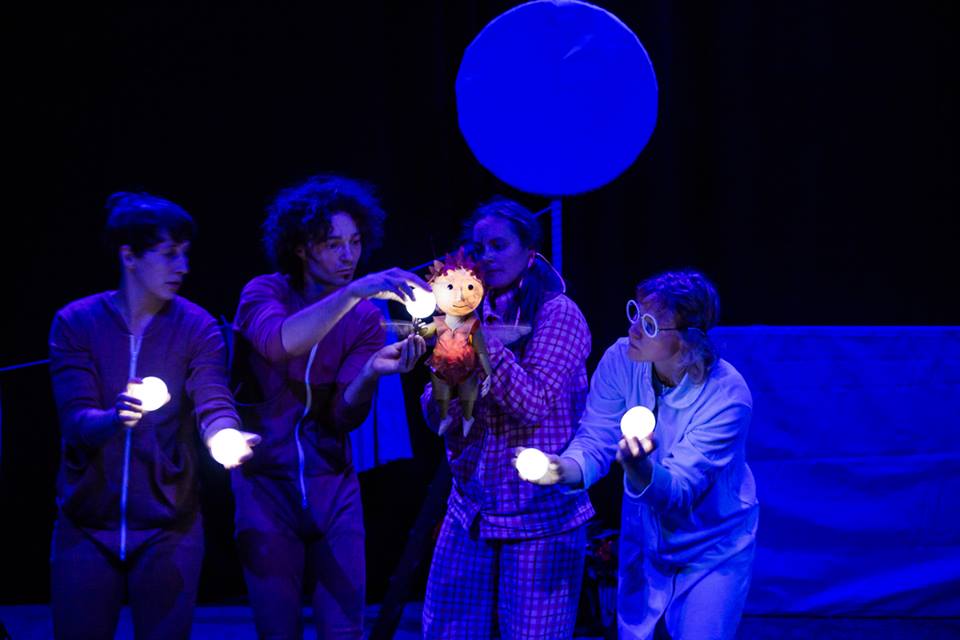

Which brings us back to the now. It's fair to say our work has been hugely diverse, spanning various artforms and scales including a smattering of site-responsive work as well. It's interesting to me to follow the threads through the work, because while it's not been a linear path for us there are multiple connections. Our opera has tended to the personal - offering quietly feminist reinterpretations of the repertoires' classic female roles and stories. The plays have been more overtly political, raising consciousness about everything from South London knife crime to the Mugabe regime, the Arab Spring to the Global Food Crisis. Our family work has also trodden a socially engaged path, exploring interracial relationships, pacifism, and representations of disability and difference. Mostly through the mediums of circus and puppetry, of course.
Remembering some of our earliest conversations about setting up a company - one of the major drivers was wanting to present diversity on stage, both in terms of gender and ethnicity, and to be a platform for those voices which felt pretty unrepresented - definitely so a decade ago and hopefully a little less now. We were cautioned about making this an explicit part of our mission statement for fear of being tarnished with the 'worthy' brush - but looking back over our productions with their countless gender reversals and having employed over 50% female artists and at least 50% BME performers it feels like those principles were definitely still guiding us.
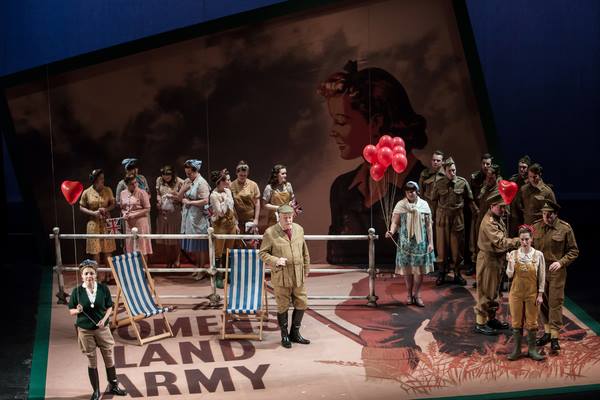
‘captivating… a triumph… genuinely heart-warming’ Oxford Times on Cosi fan tutte
‘fantastic…great singing, scintillating puppetry and skilful circus.’ ★★★★ Parenting Without Tears on The King of Tiny Things
'a knock-out… heartbreaking... has to be seen to be believed. Make sure you do.’ ★★★★ The Times Critics' Choice
Metta Theatre. Ten years of theatre, opera and circus. Ten years of unheard stories and voices. Ten years of changing the world through the power of imagination.
Here's to the next decade.


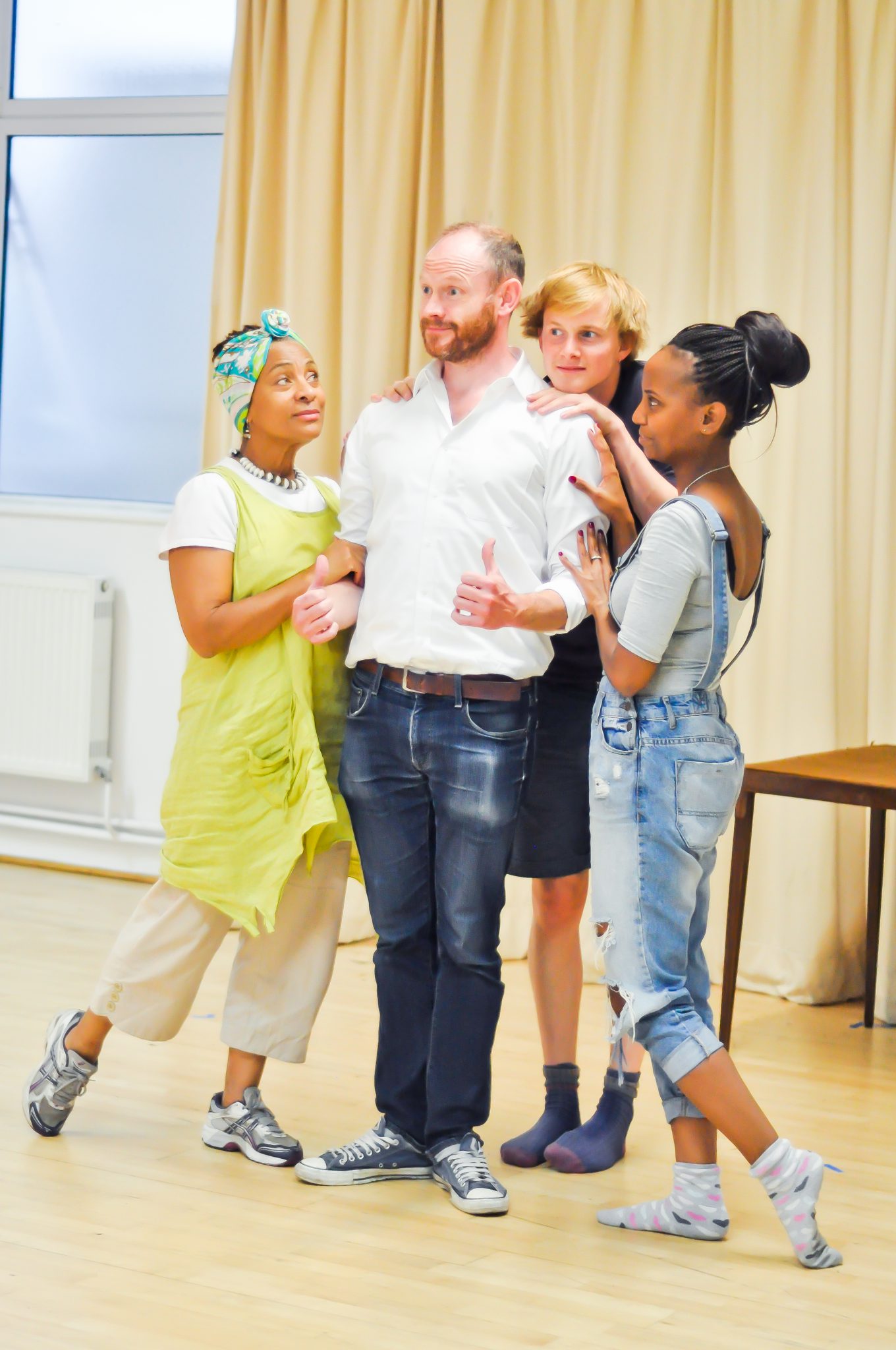
 There are very few traditions that we observe within the Metta family (me, Will, our two little ones and now our full-time administrator Anthea) but eating together is one of them. Every lunchtime (when we're not in rehearsals for a show) the five of us sit down together and share a loaf of home-made bread, cheese, tomatoes, occasionally an avocado, always hummus. It's a small thing, but actually it's a huge thing. As chronic workaholics/parents of young children we're up at 6am and working til 1am most nights so breakfast, lunch and dinner are some of the only times that we stop. A time to check in, talk to each other, laugh - simply be together as a family. Precious times.
There are very few traditions that we observe within the Metta family (me, Will, our two little ones and now our full-time administrator Anthea) but eating together is one of them. Every lunchtime (when we're not in rehearsals for a show) the five of us sit down together and share a loaf of home-made bread, cheese, tomatoes, occasionally an avocado, always hummus. It's a small thing, but actually it's a huge thing. As chronic workaholics/parents of young children we're up at 6am and working til 1am most nights so breakfast, lunch and dinner are some of the only times that we stop. A time to check in, talk to each other, laugh - simply be together as a family. Precious times.


